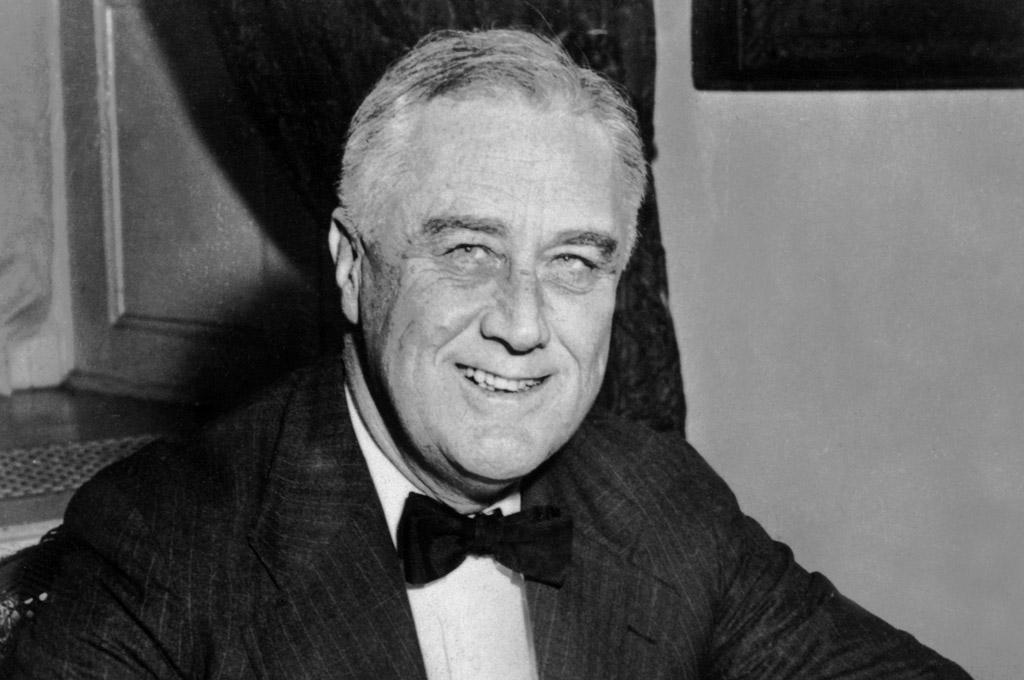Op-Ed: On FDR’s birthday, a celebration of polio champions
An undated portrait of US President Franklin D. Roosevelt.
January 30 marks the 131st birthday of Franklin D. Roosevelt, the longest-serving American president, who guided the nation through the twin perils of the Great Depression and World War ll. But we also remember FDR for another humanitarian cause—his contribution to the war against polio.
The groundswell of global solidarity against polio is one of Roosevelt’s most remarkable legacies. The insidious killer and crippler of so many around the world is now closer to eradication than ever before. Today, we’ve eliminated 99 percent of new polio cases and only three endemic countries remain: Afghanistan, Nigeria, and Pakistan.
Thanks to tremendous advances last year, we have a unique opportunity to end polio. In 2012, we saw the fewest cases in the fewest countries on record. But we must ensure that a funding gap does not stand in the way of success. Now, we must secure the resources to realize Roosevelt’s vision of a polio-free world. Donors and endemic countries must fully fund the Global Polio Eradication Initiative to finish the job.
Roosevelt took up the fight against polio in the 1930s, motivated by his own struggle with the disease.
A series of “Birthday Balls” was held each January 30 during Roosevelt's early years in the White House to honor the President and raise the needed funds. Hundreds of cities took part, using the slogan, “We Dance So That Others Might Walk.” Joining with his former law partner, Basil O’Connor, FDR then created the March of Dimes, the first philanthropy to mobilize mass support for a deserving medical cause.
As mothers marched door-to-door collecting coins, Hollywood stars like Humphrey Bogart appealed to radio listeners to help fight polio. In the 1940s and 50s, celebrities such as Marilyn Monroe and Elvis Presley joined with millions of “polio volunteers” to support the scientific research and testing that led Drs. Jonas Salk and Albert Sabin to develop their life-saving vaccines. It would prove the largest and most successful such voluntary effort in American history.
The fight against polio has followed in FDR’s footsteps and marshaled a wide and diverse range of polio heroes, including Bill Gates, co-chair of the Bill and Melinda Gates Foundation, who has worked tirelessly to raise awareness of polio efforts around the globe; Rotary International, which has mobilized millions of volunteers over the past 25 years to vaccinate children; and Dr. Naveen Thacker, who helped eliminate polio in India, one of most challenging places to fight the disease.
Building on existing vaccines, researchers are hard at work refining tools and strategies to ensure all children are protected from the virus. For example, GPS tools in Nigeria track vaccinators to ensure quality campaigns and ensure children are not missed. In recent years, social media has both broadened the base of advocates and helped to elevate this global cast of polio fighters.
Franklin Roosevelt and other polio champions have brought us to this crucial point. Now it’s our turn to honor their legacy and make history by eradicating polio once and for all.
David Oshinsky is the Pulitzer Prize-winning author of Polio: An American Story, and a history professor at the University of Texas at Austin and the NYU Langone Medical Center. Follow him on Twitter @DavidOshinsky.
We want to hear your feedback so we can keep improving our website, theworld.org. Please fill out this quick survey and let us know your thoughts (your answers will be anonymous). Thanks for your time!
